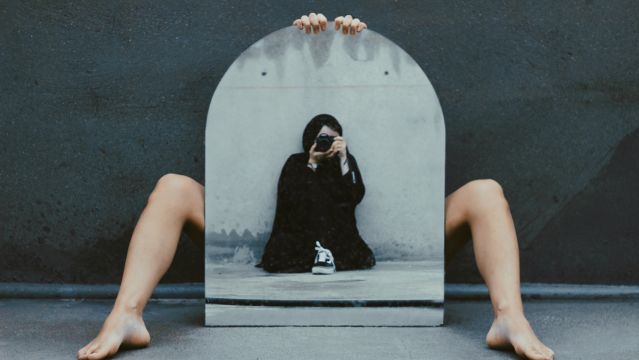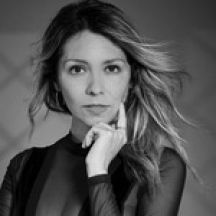While researching photographers based in Morocco to complete the jury for our Photography: the Universal Language open call, I came across Fatimazohra Serri, and I knew immediately I wanted to work with her, if she accepted.
Born in Taza and raised in Nador, Morocco, Fatimazohra's artistic path is a testament to the transformative power of self-expression.
At just 29 years old, Fatimazohra's exploration of photography began in 2016, spurred by a desire to break free from the monotony of a desk job as an accountant. Battling feelings of isolation and a sense of being unheard, she turned to photography as a means of both escape and discovery.
FFU: First, thank you so much for taking a bit of time to speak to me. Could you tell everyone about your start in photography?
FS: I started shooting with the simple lenses of a mid range phone, a year later I received an affordable camera as a present from a friend to take my hobby to the next level. After enjoying street photography for some time, I wanted to discover a completely different style, which is conceptual photography, to create something that reflects who I am and more related to me. I started with self portraits on the roof of our house, and sometimes my sister as a model.
Due to the controversial nature of my work, I find it challenging to freely shoot in public. As a result, most of my early works were shot exclusively on the roofs of my home or my friends' homes. In August 2021, I decided to quit my job and focus on photography and to work as a full time artist photographer. I took this decision after 5 years of working as an accountant, that was affecting my practice as an artist and most importantly, my mental health.

FFU: I have a lot of respect for anyone taking the leap of changing careers to full time photography as it's a career where it's hard to find stability. I find your images very forward thinking and some even daring. What motivates you to create your photography?
FS: My environment and the people that surround me are my biggest inspirations, particularly the women in my conservative society. Also, the situations I have experienced personally or witnessed through the people around me.
Photography is my tool to express my feelings about those experiences. Through my work, I aim to shed light on their stories and challenges and spark conversations.

FFU: How does the Arab World public respond to your imagery? And abroad?
FS: The response to my imagery varies both within the Arab World and abroad. In the Arab World, where the conservative societal norms are deeply entrenched, reactions can sometimes be mixed. While some appreciate the representation of women's experiences, others may view it as controversial or even confrontational.
Abroad, my imagery often garners more positive reception.
FFU: You were on the jury of our open call, what made you decide to participate? I was really happy you agreed. It was important for me to have perspective of a female or non-binary photographer in Morocco as well as someone young.
FS: As someone passionate about exploring themes of womanhood and societal dynamics, being on the jury provided me with a valuable opportunity to engage with diverse perspectives and recognize talent that deserves recognition. I saw this as a chance to contribute to the artistic community and help amplify voices that deserve to be heard.
FFU: Yes! Completely our goal with the exhibition. What is it like working as a woman photographer in Morocco?
FS: As a woman photographer in Morocco, I encounter both obstacles and chances for growth. While societal norms can shape perceptions, sometimes dedication and skill can overcome these barriers. Being a woman grants me access to perspectives and moments that add depth to my work, offering a more authentic portrayal of Moroccan life.

Embrace your voice and perspective. Take risks, tell the stories that matter, and surround yourself with support. Keep learning, experimenting, and trusting in your abilities. Your art has the power to make a difference. Keep shining through your lens.
FFU: How do you see the future of photography evolving in Morocco, particularly for emerging women photographers like yourself?
FS: I see a promising future for photography in Morocco, especially for emerging women talents. As society becomes more open to diverse perspectives, there are increasing opportunities for photographers to thrive.
FFU: Any last words for young women photographers such as yourself?
FS: Embrace your voice and perspective. Take risks, tell the stories that matter, and surround yourself with support. Keep learning, experimenting, and trusting in your abilities. Your art has the power to make a difference. Keep shining through your lens.






